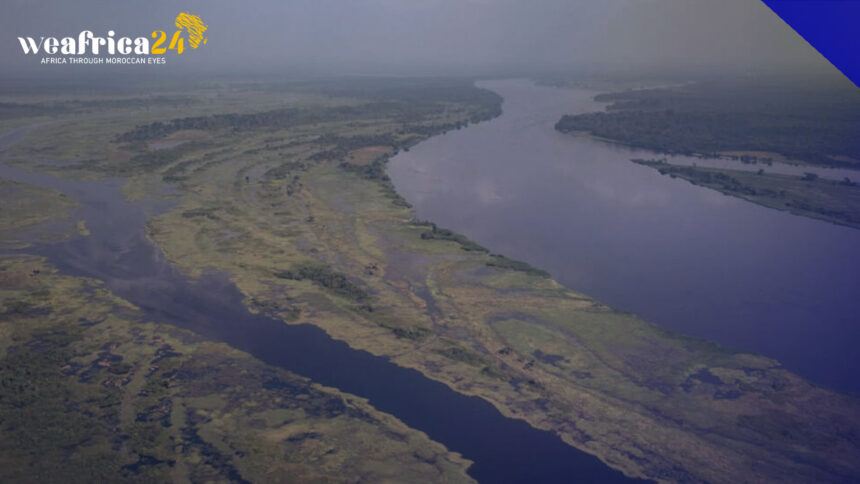The serene waters of the Vaal River are under siege by an unlikely foe: water lettuce, an invasive aquatic weed of South American origin. This resilient plant, thriving amidst warm temperatures and pollution, has rapidly spread along sections of the river, leaving authorities and residents grappling with its unchecked proliferation.
Initially detected by vigilant residents, organizations, and businesses in 2021, the invasion likely originated from a garden along the Suikerbosrand River before establishing a stronghold between the Taaibos and Rietspruit tributaries. Despite early warnings, decisive action to curb the spread of water lettuce was delayed, allowing the weed to double its coverage every 10 days, ensnaring approximately 139 hectares of river life in its suffocating grip.
Businesses and homes lining the affected stretches of the Vaal River have borne the brunt of the invasion, with water lettuce blanketing indigenous vegetation and encroaching on livelihoods. Efforts to eradicate the weed are underway, but progress has been hindered by its tenacity and the challenges posed by pollution from upstream wastewater treatment plants.
Dr. Lesley Hoy, manager of Rand Water’s environmental management services, highlighted several potential sources of the infestation, including contaminated ponds, boating gear transfer, and bird migration. The polluted state of the water exacerbates the problem, with inefficient wastewater treatment plants upstream contributing to high levels of nitrates and phosphates, ideal conditions for water lettuce proliferation.
Dr. Julie Coetzee, deputy director of Rhodes University’s Centre for Biological Control, emphasized the correlation between water lettuce growth and environmental disturbance, citing non-compliant wastewater treatment plants as major contributors to pollution in the Vaal River.
Rosemary Anderson, Chairperson of the Federated Hospitality Association of Southern Africa (FEDHASA), lamented the lack of proactive maintenance along the Vaal River, noting the discontinuation of preventative measures since 2014. According to Anderson, the absence of maintenance teams allowed water lettuce to establish itself virtually unimpeded, exacerbating the current crisis.
Despite ongoing efforts to combat the invasion, traces of water lettuce have already spread beyond the Vaal barrage, raising concerns about potential infestation in other water sources. With pollution and neglect exacerbating the problem, urgent action is needed to safeguard the ecological integrity of the Vaal River and mitigate the impact of invasive species on local communities and ecosystems.







